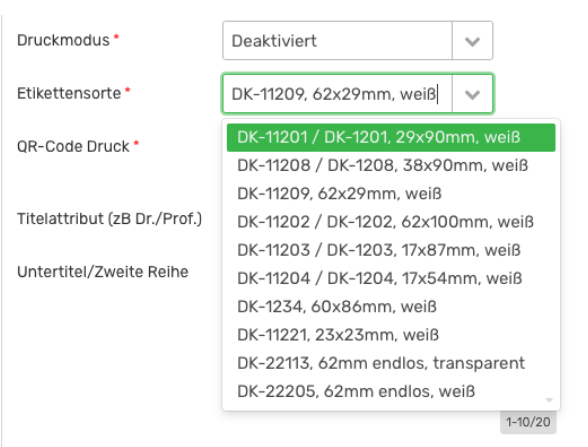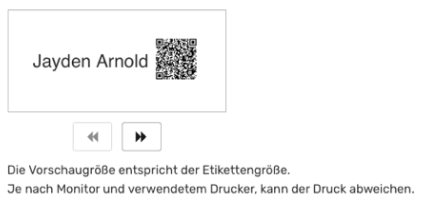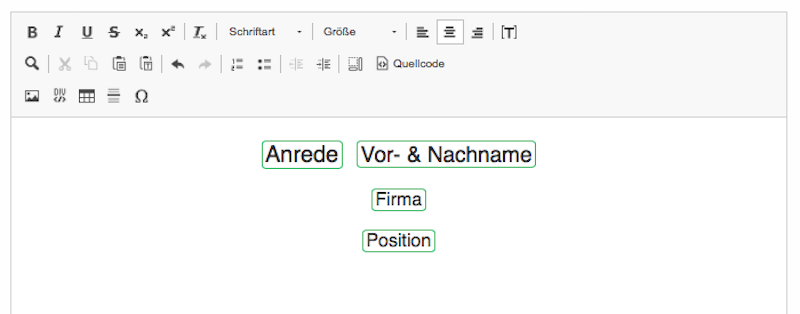Sweap set up for admins
Account setting
Administrator's guide to setting up your account
General account settings
Enable AI Feature
The event tags - creation and usage
Create guest fields for your account
Adding deletion rules to automatically delete guest data
Set up templates
User roles and permissions
Permission sets - Default user roles in Sweap
Permissions and configuration of default permission sets
User permissions and their functions in Sweap
Setting up new users
Use single sign-on
Roles and permissions
Visibility groups
Event-Ticketing - e-payment with Sweap
API and publishing package function
Implementing the event overview page within your website
Implementing the event overview page in an IHK24 website
Use Sweap's Zapier integration
Import of distributors with EVA
Import groups and committees from EVA master data
Sweap app and devices for check-in
Set up domain and email address
Getting started with Sweap - Basics
Event overview and dashboard
Basic structure of the event overview
The action field and its functions
The calendar view for your events
The event dashboard - overview
Event Sustainability Widget
Basic functions
Event formats in Sweap
What are event series?
Single event creation with Sweap
Create event series in Sweap
Create sessions for your event series
Using time zones in Sweap
Duplicate an event to use it as a template
The preview mode for creating emails or webpages
Using the correct image sizes
Create text with the HTML-Editor
AI feature in use in HTML editor
Use placeholders in Sweap
Customize headlines and text with HTML
Linking emails and websites in Sweap
Legal notice and privacy policy
Support and data protection at Sweap
GDPR-compliant consent management and cookie banners
Data tracking with Sweap
Privacy policy and GDPR
Questions about security & data protection
Sweap AI - Questions about security & data protection
Increasing security - introduction of Keycloak
Session limits - session limitation
Send your feedback about Sweap
Personal settings
Search and filter functions
The search function in Sweap
Using the filter function in Sweap
Last Update and Last Reply of your guests
Best practice, online webinars and updates
Create and manage contacts and guests
Create, import and export guest information
Add guests to your list
The guest import with Excel
Edit guest information and change status manually
Export your guestlist
Create and manage contacts
Add companions
Manage attributes for guests and divisions
Standard Fields and Event-Related Information in the Guest List
Create and edit attributes
Segmenting guests by categories
Postal mail invitation and QR code
Setting up and sending emails
Setting up and configuring emails
The email types and their use
Create mails more efficient with using the duplicating function
Testing emails in the editor: Here's how it works
Individual salutation
The guest salutation
Create guest salutation with our salutation assistent
Use your own salutation form in your emails
Dynamic email builder
Dynamic email builder: Create emails
Guest-Links and Token: Efficient Event Communication
Configure emails using a dynamic modular system
Design your email - Content
Design your email - Rows
Design your e-mail - General
Email wizard
The different types of email templates
The Email template LA LUNA
Static email wizard: creating emails
Configure emails - set up an invitation email
Call to Action Button withinin emails
Insert links for virtual events into emails
Insert stock photos into emails
Font types in emails
Troubleshooting for emails
Opt-In states and bounces
Reduce spam probability of emails
Display images correctly in my email
Delivery notification and bounces in the email log
Basics for the successful delivery of emails
Tracking email opening rates
Important information about blocked email addresses - status "mailjet: preblocked
Sending out emails
Registration pages & Virtual event platform pages
Registration page basics
Creating a registration page - basic steps
Metadata and SEO for registration pages
Deactivate event pages (URL link tracking)
Registration page - using the Website Builder
Registration page - using the websitze wizard
Templates for your webpage
Contents and modules of a registration page
Texts, colours and design for the registration page
Settings to close the registration page - Website Wizard
Registration options settings within the Website Wizard
CSS & Java Scripts for website customisation
Header and footer within a website
Publish events on your own website
Font types on websites
Setting up the registration form
Configuration of a registration form
Add a checkbox with URL to the registration form
Show and hide form fields
Enter accompanying persons (registration form)
Virtual Event Platform
Integrations and modules for the Virtual Event Platform
Operate and monitor events with Sweap
Table of Contents
- All Categories
- Operate and monitor events with Sweap
- Label printing
- The print settings
The print settings
 Updated
by Ingo
Updated
by Ingo
Sweap offers the function to print name labels. These can contain various information that you select.
You can access and configure the print function within the configuration in the corresponding event by going to "on site" and selecting "name tags".
Please also note the print preview option, which you can always view on the right side of the screen. For an exact control of the printable area on the labels it is necessary to make a test print before an event.

Print settings
Print mode
The print mode allows you to select the way in which the name label is printed, when and how often. In the standard version, the label is printed automatically once at check-in.

- Deactivated: No name tag is printed, the button for printing is not displayed.
- Manual: A print button is displayed next to the check-in button. One name label is printed per click on the print button.
- At Checkin (once): same as Manual, except that a name tag is automatically printed the first time the guest checks in.
- At Checkin (multiple): same as Manual, except that a name label is automatically printed at each check-in of the guest.
- Show print dialog: Clicking on the print button opens a dialog for selecting the printer (otherwise only the first time the print is made). After selecting the printer, a name label is printed.
Using the expert mode the labels can be printed more flexible. More information and explanations about the expert mode can be found further down in this article.
Label type
Select the type and size of label you want to print. The corresponding value must match the paper loaded in the printer, otherwise an error message will be displayed. You can manage this using the "Label Type" setting function.
For fanfold paper, the width of the label must match the selected size. The following labels are currently supported:

DK-11209 is the most commonly used size, as it is the production of a label as it can be attached to a standard folder.
Round labels (DK-11218, DK-11219, DK-11207) are currently not supported.
Further information about the print labels and where to obtain them can be found here.
Preview function
On the right side of your screen you will see a preview of the label, which is displayed in its original size. Please note that the preview function does not always match the actual print. Therefore, it is always recommended to make test prints before the event, especially in case of long names, which may cause breaks, scaling or shortening.

QR Code
As a further feature you can specify whether the QR code, which is otherwise sent with the ticket, is printed directly on the name label. There are two sizes available and the possibility to position the QR code to the right or below the rest of the text. Please note that the QR code limits the space required. We therefore recommend using larger labels than the standard size if necessary.

Title attribute
In the next step of the settings, you can specify a title attribute for the name labels, e.g. whether a preceding title or salutation should be printed.

Subtitle | second row
You can also select an attribute to be printed in second row under the name. Any attribute can be used for the second row. Please note that in the case of long guest information, the system will scale or shorten the information so that it fits on the label. To avoid printing this information too small, we recommend shortening the information beforehand (for example, for long company names), or choosing larger labels.

Expert Mode
The expert mode allows you to flexibly save settings for printing the labels. Any attributes of a guest and even more information can be used. Various fonts and font sizes are also available.
To do this, first check Expert Mode to open this configuration step. You can now access the HTML editor with the dynamic placeholder function. To do this, click on the T field in Expert Mode. For more information about the HTML editor, see here.

This opens the so-called Token Insertion, which allows you to select the placeholder you want to add to the name label. The placeholder is then filled in by the system with the appropriate information. In our example we choose "Position" and click Ok.

The attribute is now integrated at the front, but you can also move it to another position. As you can see, we would like to have the position printed on the label as the last specification.

If you click on an appropriate placeholder, for example the position, it will be marked. Now you can also change the font or size.
